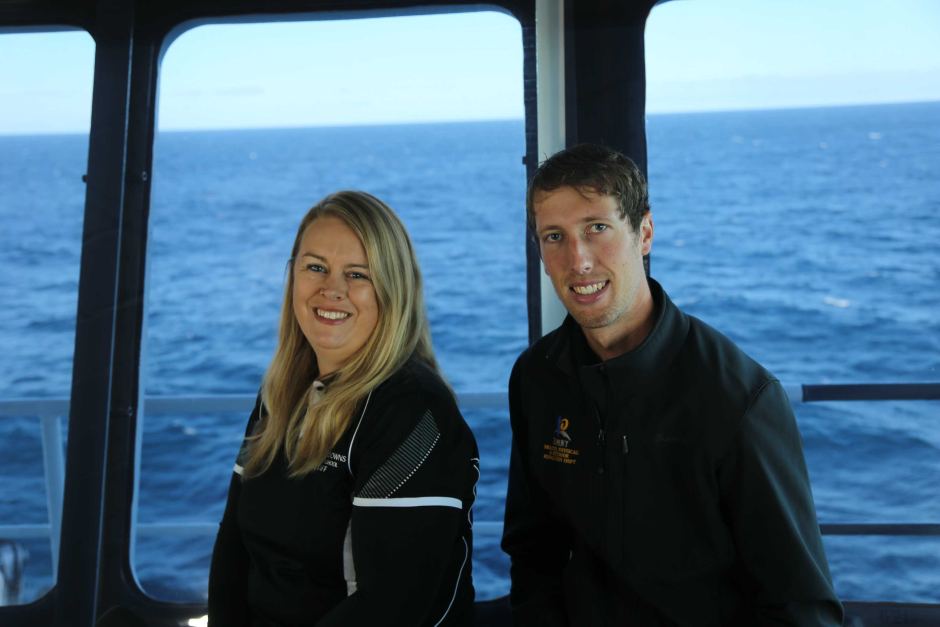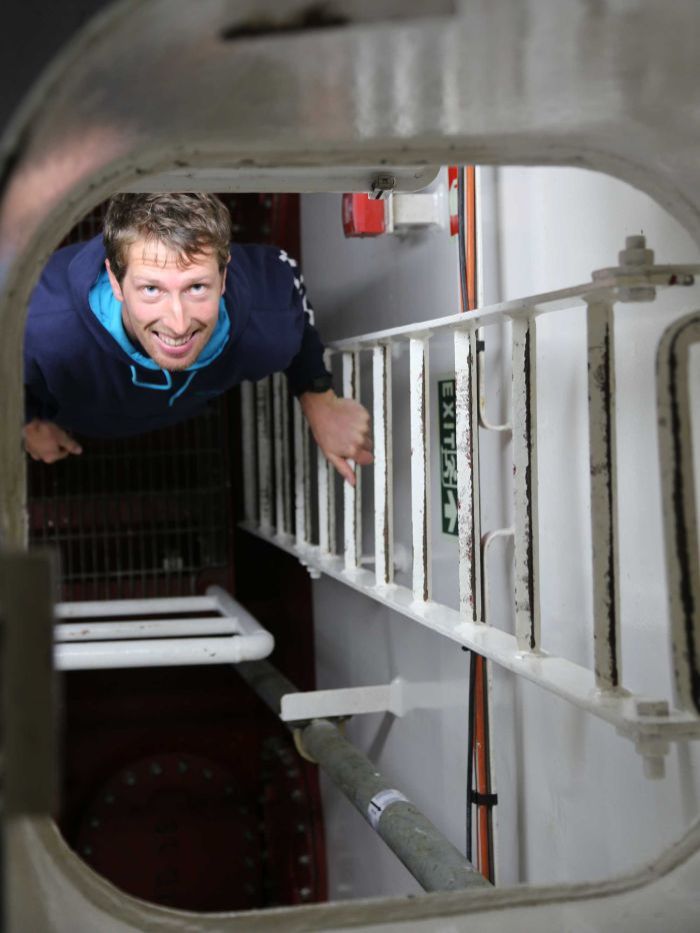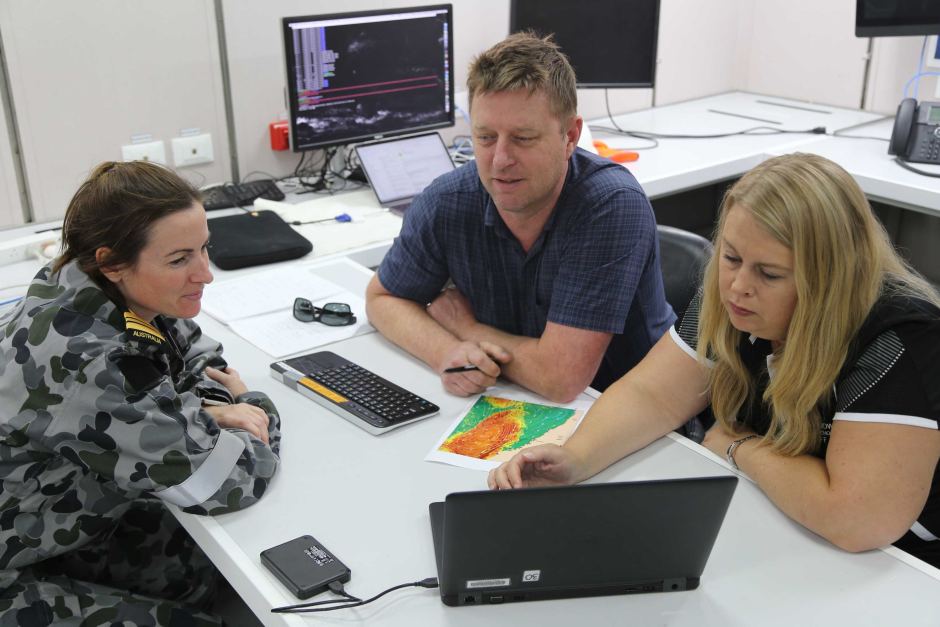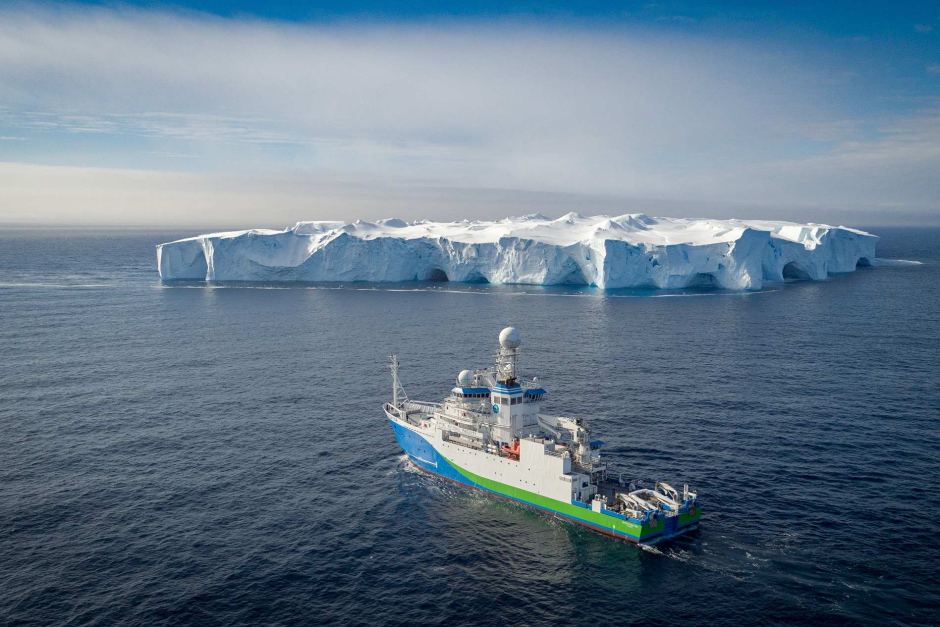
PHOTO: Teachers Christie Evans and Callum Hollingsworth went live with lessons from the RV Investigator. (Supplied: CSIRO)
Teachers Christie Evans and Callum Hollingsworth went live with lessons from the RV Investigator. (Supplied: CSIRO)
This article first appeared on ABC News online.
A group of Australian school teachers and educators are heading home after a week on the high seas beaming lessons back to shore.
The CSIRO’s Educator on Board program offers primary and secondary teachers the opportunity to sail on its marine research ship RV Investigator.
The educators assist scientists with marine research to enhance their Science Technology Engineering and Maths (STEM) knowledge and content.

PHOTO: Callum Hollingsworth gets a tour of the ship's engine room. (Supplied: CSIRO)
Callum Hollingsworth gets a tour of the ship’s engine room. (Supplied: CSIRO)
Adelaide Seaview Downs Primary School teacher Christie Evans and Hobart Rosny College maritime operations teacher Callum Hollingsworth were among five educators on board, who observed and participated in plankton sampling, ocean forecasting, sea bird tracking and ship wreck surveying.
They conducted regular live webcasts to their classrooms and others around Australia during the voyage, and will incorporate their experiences at sea into lesson plans.
Ms Evans said it was a rare opportunity to engage students with real-world science.
“Seldom do primary school students really have an insight into what scientists actually do, particularly in field work,” she said.
“To bring a real-world application to the classroom in science will give the kids a sense of meaning, and that is the sort of stuff that they will remember.”
She spent most of her time on board with female scientists and hoped her young female students would be inspired by their stories.
“It’s important to show girls in primary school what they can be and that science is just such a wonderful career to pursue,” she said.
Ms Evans said questions from her students while on board ranged from “what do you eat?’ to “what species of plankton have you found?”

PHOTO: Christie Evans spent time learning about ocean forecasting. (Supplied: CSIRO)
Christie Evans spent time learning about ocean forecasting. (Supplied: CSIRO)
Mr Hollingsworth said industry insight would be most valuable for his students.
“I thought the program would be a really great opportunity for me to experience what it is like on a large vessel and be able to bring that back to the class,” he said.
“I will be able to relay back what the different researchers were doing on board and the different opportunities on board.
“Real life experience is really up there for them. A lot of it is about being able to taste what it is like in the industry they want to go into and trying to set them up for success in that industry.”

PHOTO: The RV Investigator was in the Antarctic last summer. (Supplied: Marine National Facility)
The RV Investigator was in the Antarctic last summer. (Supplied: Marine National Facility)
Marine National Facility program co-ordinator Ben Arthur said there would likely be more opportunities for school teachers to spend time on the research ship from next year, after the RV Investigator received funding for an extra 120 days at sea annually.
“CSIRO has an important role to play in educating and training the next generation of not only marine researchers but managers and educators, who are going to be responsible for managing Australia’s environment in the future,” he said.
“We have a responsibility to offer education opportunities for teachers, so that they can take these real-world experiences back into their classrooms to inspire their students.”
The Investigator will return to Hobart on Monday after setting sail from Brisbane a week ago with scientists, researchers, educators and crew on board.


Taking teacher training to the high seas